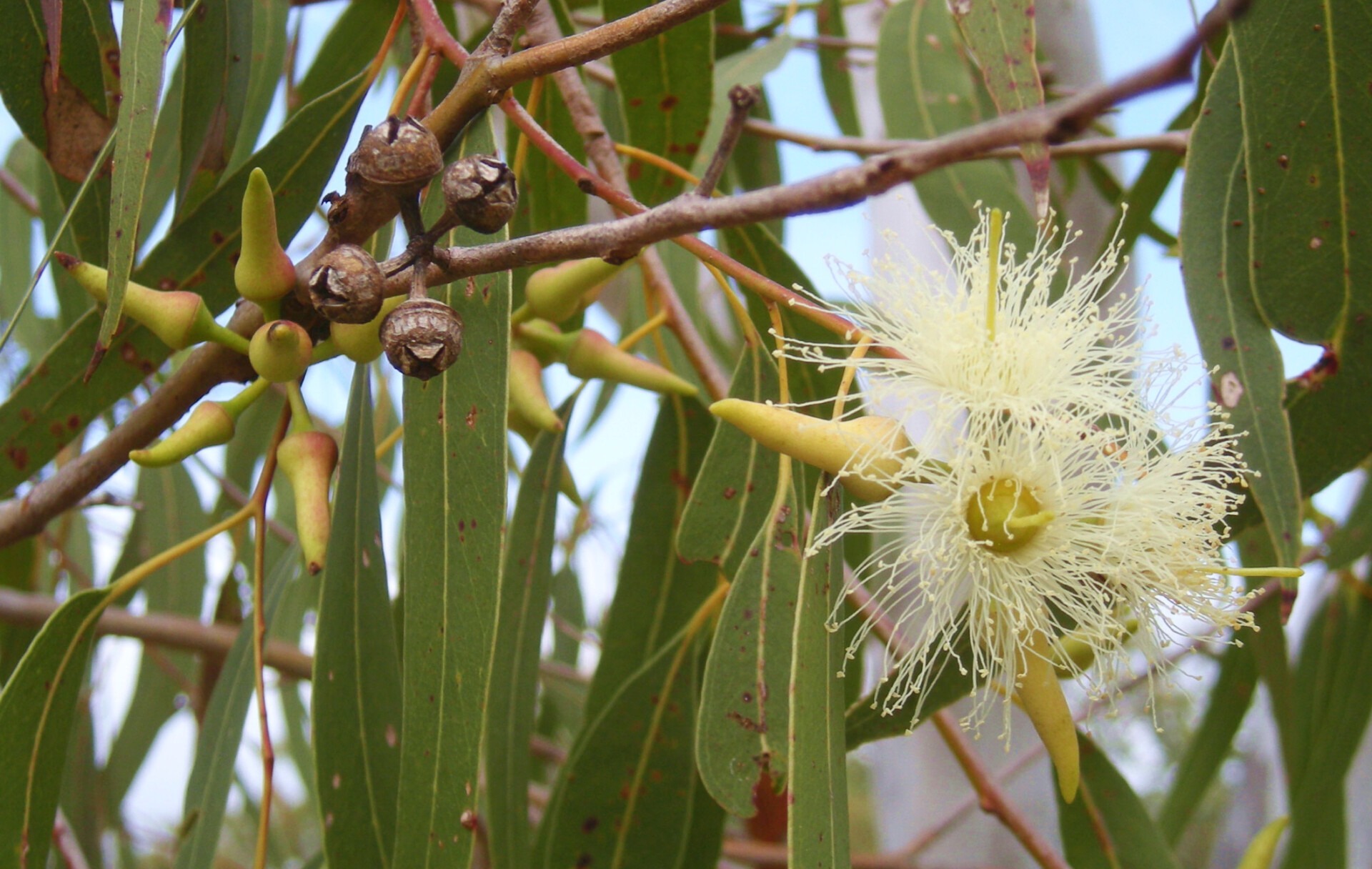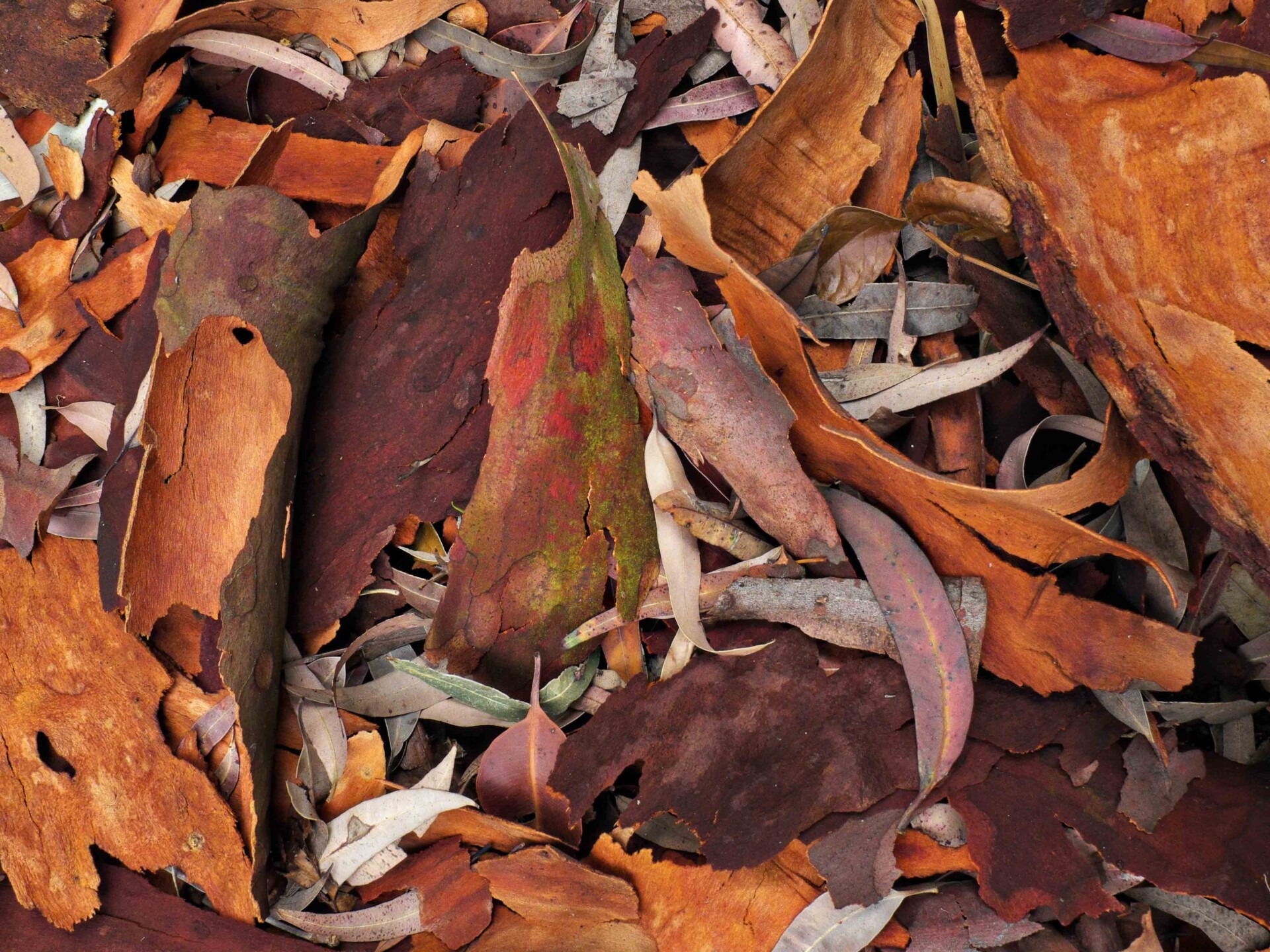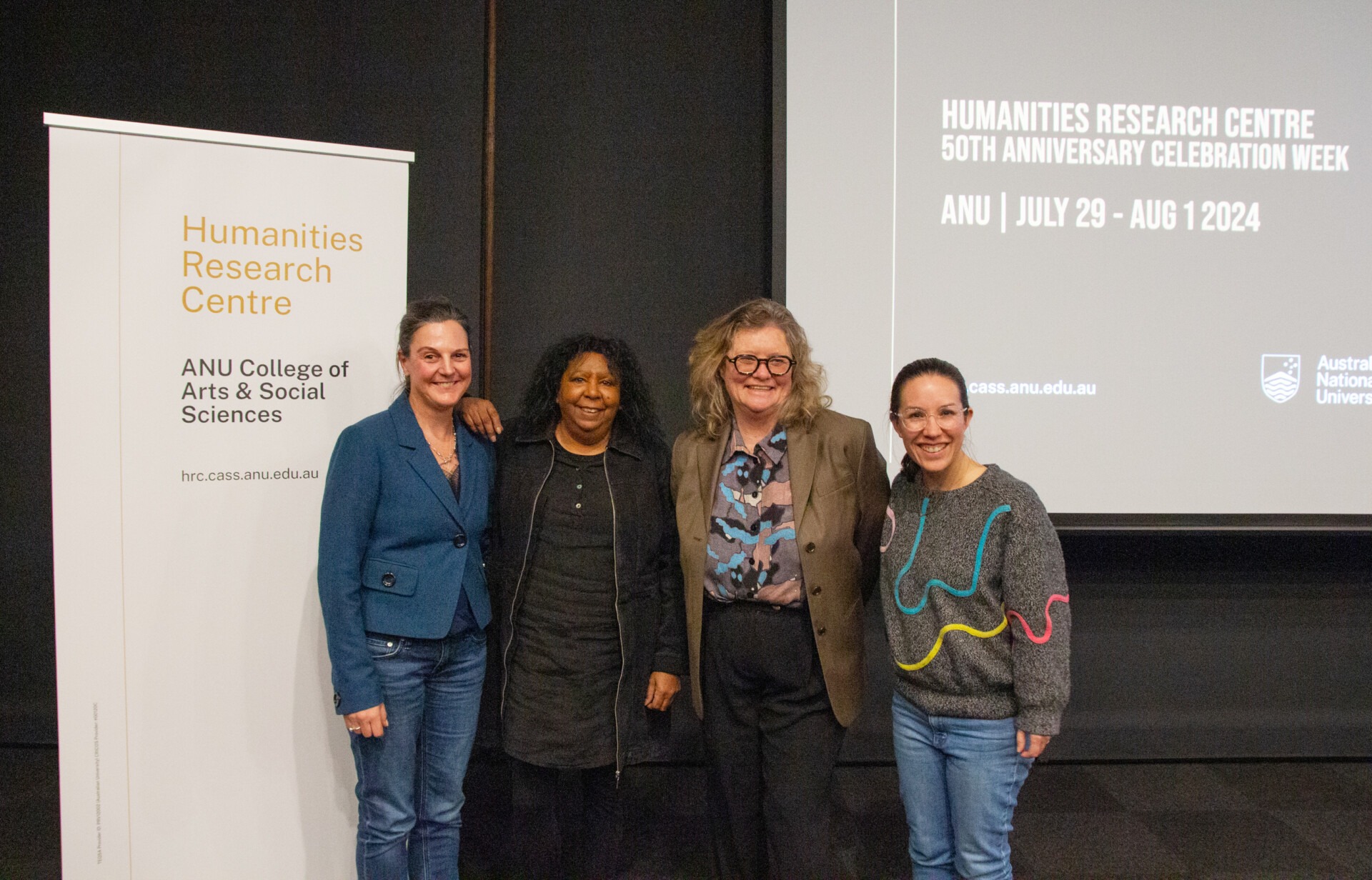-

Indigenous Family History Research Opportunity 29 Jan to 7 Feb 2025
When: 29 January to 7 February 2025
Where: Australian National University
What: We are seeking expressions of interest to take part in an Indigenous Family Research Residency. This is
being hosted by Ann McGrath’s ARC Laureate Program and the Research Centre for Deep History.This residential program is for Indigenous women interested in building their skills in family history research.
The program includes workshops at ANU, primarily led by Indigenous historians and researchers, including
collaborating scholars and special guests of the Research Centre for Deep History.The Residency also includes introductory sessions and practical research experience at three of Canberra’s
key research sites:- Developing a research plan
- Australian Institute for Aboriginal and Torres Strait Islander Studies (AIATSIS), led by the Family History Unit
- National Library Australia, led by the Indigenous Engagement Team
- National Archives Australia, led by the Aboriginal Engagement Team
Participants will learn about practical strategies and tools to help with family research including:
- Where to start
- Navigating catalogues
- Using digital archives
- Experiencing the reading room and handling archival material
- Making connections between different collections
- Organising research material
- Getting started with writing
The Residency includes:
- Self-contained, shared accommodation at ANU from Tuesday 28 January – 8 February 2015 (2-bedroom apartments)
- An allowance of $30 per day, per person for day-to-day costs, as well as some catering
- Contribution towards travel costs to Canberra (up to $400 per person)
- A travel card with two bus trips per day to facilitate independent travel to the research sites (AIATSIS, NLA and NAA)
- Access to shared office space in the School of History at ANU
- A take-home Research Pack
- A certificate of completion
- The opportunity to provide feedback and suggestions for future workshops
To apply:
Please email admin.rcdh@anu.edu.au with the following:
1) A one-page CV including your education, work experience, and participation or volunteering in any similar workshops
or community programs.
2) A one- page application that responds to the following questions:- What are the aims of your family research?
- What family research have you undertaken so far?
- How will you and/or your community members benefit from this research residency?
- Are you able to participate in the two-week program at ANU in Canberra from 29 January to 7 February?
Who is eligible?
No specific academic qualifications are required.
Applications are open to Indigenous women engaged in family history.
Applicants must be able to spend 10 days in Canberra, from 29 January to 7 February 2025.
Selection will be based on:- The potential for participation in the residency to benefit the applicant’s research aims.
- The overall quality of the application.
Key Points
- Please submit your expressions by 22 November 2024.
- Successful applicants will be notified by 29 November 2024.
- Applications should be emailed to: admin.rcdh@anu.edu.au
If you have any questions, please call Beth on 0407057919 or email beth.marsden@anu.edu.au
The RCDH acknowledges and gives thanks for the feedback provided by participants in the first version of thi\
workshop in April 2024. This input has been integral to the development of this Residency Fellowship.
Follow this link for more information about the first workshop.
The RCDH acknowledges that this Residency is being held on the unceded lands of the Ngunnawal and Ngambri people
of the Canberra region. We pay our respects to elders past and present.
This Program is an initiative of the Kathleen Fitzpatrick Laureate Program ‘Rediscovering the Deep Human Past
Laureate project (FL170100121) funded by the Australian Research Council and the Australian National UniversityThis image by Ethel Aardvark is licensed under the Creative Commons Attribution-Share Alike 3.0 Unported license.
-

Applications closed for Family History Research Residency 2024
The Indigenous Family History Research Residency for Spring 2024 has closed. We thank everyone who took the time and care to apply, and hope for a future opportunity to run a similar program. If you would like to be contacted of any future opportunities should they arise, please contact us at rcdh.admin@anu.edu.au
-

Applications close next Monday Sept. 2: Indigenous Family History Research Opportunity
A reminder that the expression of interest for the Indigenous Family Histories Research Residency Fellowship (Oct 27 – Nov 8) will close next Monday 2nd September (5pm). Follow the link below for more information about the fellowship. Thank you to all the people who have sent applications so far.
-

Centre Director Professor Ann McGrath Appointed to National Museum of Australia Council
The Director of the Research Centre of Deep History, Distinguished Professor Ann McGrath has been appointed as a member of the National Museum of Australia Council for a three-year term. Ann joins three other distinguished women as new council members: Professor Clare Wright OAM as the new Chair of the Council, Professor Megan Davis and Ms. Janine Freeman. “I’m honoured to be appointed to the Council of this crucial national institution,” says Ann. “Its role in addressing our nation’s full history is significant for us now, as well as for future generations of Australians. I am looking forward to working with this talented group of fellow Council members and museum staff.” Read more on the ANU College of Arts and Social Sciences website.
Image credit Jamie Kidston@ANU
-

Time, place, everywhen “Practicing Reclaiming and Revival”: Maree Clarke in conversation with Laura Rademaker and Virginia Rigne
Laura Rademaker (photo far-right) was in conversation with Maree Clark (second left) and Virginia Rigney (Canberra Museum and Gallery) as part of the HRC 50th anniversary event on July 29th 2024. Maree is a Yorta Yorta/Wamba Wamba/Mutti Mutti/Boonwurrung multi-disciplinary artist and curator, whose Visiting Fellowship in Canberra focuses around the Ginninderra River Reed Necklace made in 1862 on display at Canberra Museum and Gallery. The conversation, titled Time, place, everywhen “Practicing Reclaiming and Revival”, focussed on Maree’s work of of re-presenting the past by reviving indigenous cultural practices through reconstructing and synthesising art techniques. Laura reflected on how history can be communicated through objects and the inter-generational sharing of knowledge.
See Maree’s full talk:
The event was supported by ANU Humanities Research Centre, Canberra Museum and Gallery, Canberra Glassworks and the Ginninderry Conservation Trust. Read the event description by ANU College of Arts and Social Sciences. Photo and video supplied by the ANU Humanities Research Centre.
-

Indigenous Family History Research Opportunity 28 Oct to 8 Nov 2024
When: 28 October to 8 November 2024
Where: Australian National University
What: We are seeking expressions of interest to take part in an Indigenous Family Research Residency. This is being hosted by Ann McGrath’s ARC Laureate Program and the Research Centre for Deep History, in conjunction with the Australian Dictionary of Biography, of the National Centre for Biography, at the Australian National University.
This 2-week residential program is for Indigenous women interested in building their skills in family history research. The program will include a combination of workshops at ANU, primarily led by Indigenous historians and researchers, including the Australian Dictionary of Biography’s Indigenous Research Editor, Shauna Bostock, collaborating scholars of the Research Centre for Deep History, and special guests, including Kath Travis (Victoria University).
The Residency Fellowship also include introductory sessions and practical research experience at three of Canberra’s key research sites:
– Australian Institute for Aboriginal and Torres Strait Islander Studies (AIATSIS), led by the Family History Unit
– National Library Australia, led by the Indigenous Engagement Team
– National Archives Australia, led by the Aboriginal Engagement Team
Participants will learn about practical strategies and tools to help with family research including:
– Where to start
– Navigating catalogues
– Using digital archives
– Experiencing the reading room and handling archival material
– Making connections between different collections
– Organising research material
– Getting started with writing
– Developing a research plan
The Residency includes:
– Self-contained, shared accommodation at ANU from 27 October to 9 November (2-bedroom apartments)
– An allowance of $40 per day, per person for day-to-day costs ($560 per person total)
– Contribution towards travel costs to Canberra (up to $400 per person)
– A travel card with two bus trips per day to facilitate independent travel to the research sites (AIATSIS, NLA and NAA)
– Access to shared office space in the School of History at ANU
– A take-home Research Pack
– A certificate of completion
– The opportunity to provide feedback and suggestions for future workshops.
To apply:
Please email admin.rcdh@anu.edu.au with the following:
1) A one-page CV including your education, work experience, and participation or volunteering in any similar workshops or community programs.
2) A one- page application that responds to the following questions:
– What are the aims of your family research?
– What family research have you undertaken so far?
– How will you and/or your community members benefit from this research residency?
– Are you able to participate in the two-week program at ANU in Canberra from 28 October to 8 November 2024?
Who is eligible?
No specific academic qualifications are required.
Applications are open to Indigenous women engaged in family history.
Applicants must be able to spend two-weeks in Canberra from 28 October to 8 November 2024.
Selection process:
Applications will be assessed by a selection committee chaired by a member of the Research Centre for Deep History and include members of the Australian Dictionary for Biography team and one other member of the School of History. The committee reserves the right to vary the number of residencies depending on the standard of applications or other exceptional circumstances.
Selection will be based on:
– The potential for participation in the residency to benefit the applicant’s research aims.
– The overall quality of the application.
Please submit your application by 2 September 2024.
Successful applicants will be notified by 6 September 2024.
Applications should be emailed to: admin.rcdh@anu.edu.au
If you have any questions, please call Beth on 0407057919 (between 6-22 August) or email beth.marsden@anu.edu.au
The RCDH acknowledges and gives thanks for the feedback provided by participants in the first version of this workshop in April 2024. This input has been integral to the development of this Residency Fellowship. Follow this link for more information about the first workshop.
This Program is an initiative of the Kathleen Fitzpatrick Laureate Program ‘Rediscovering the Deep Human Past Laureate project (FL170100121) funded by the Australian Research Council and the Australian National University.
Image: Photo by David Clode on Unsplash (detail) -

Australian Academy of the Humanities Travelling Scholarship for Beth Marsden
Congratulations to RCDH Postdoctoral Research Fellow Dr. Beth Marsden for being awarded an Australian Academy of the Humanities Travelling Scholarship for her project “Children’s School Journeys: Experiences of Mobility for Education”. The project examines children’s journeys to school in postwar Australia and Finland as forms of historical experience. See the 2024 Humanities Travelling Fellowship page for more details.
-

First Nations Speaker Series: Coomaditchie
Don’t miss the First Nations Speaker Series: Coomaditchie at Museum of Sydney. (Wednesday 31 July, 6pm–7pm.)
Join Emeritus Professor John Maynard and First Nations Curator Tess Allas as they reflect on their own families’ activism in Aboriginal affairs and human and worker rights in the Illawarra and throughout the nation.
Museum of Sydney
Wednesday, 31 July
6pm–7pmFree event, book now – https://mhnsw.au/whats-on/events/first-nations-speaker-series-july-2024/
The First Nations Speaker Series is presented in collaboration with GML Heritage, The University of Sydney and the Research Centre for Deep History at the Australian National University.
The exhibition Coomaditchie: The Art of Place, now on at the Museum of Sydney, highlights the work of the Coomaditchie United Aboriginal Corporation.
Photo © James Horan for Museums of History NSW
-

Appointment: Shauna Bostock to the National Centre of Biography
Congratulations to RCDH collaborating scholar Dr. Shauna Bostock who has accepted the position of Indigenous Australian Research Editor (Indigenous Identified Position) in the National Centre of Biography at the Australian National University. Shauna will be working with the Australian Dictionary of Biography, specifically on the First Nations Biography Australia Project. Shauna is a former doctoral students at the School of History at the ANU, and published her thesis in 2023 titled Reaching Through Time: Finding My Family’s Stories (Allen & Unwin). Shauna begins her position on the 15th of July, 2024.
-

Free Event: First Nations Speaker Series “Coomaditchie”
The First Nations Speaker Series is presented in collaboration with GML Heritage and the Research Centre for Deep History at the Australian National University. This particular talk is also presented in collaboration with the Museums of History NSW and the Museum of Sydney.
Join us for our next First Nations Speaker Series event on Wednesday 31 July, 6pm–7pm, at the Museum of Sydney as Emeritus Professor John Maynard and First Nations Curator Tess Allas reflect on their own families’ activism in Aboriginal affairs and human and workers rights in the Illawarra and across NSW. Read More.
When: Wednesday 31 July 2024, 6pm–7pm
Where: Free entry at the Museum of Sydney, corner Phillip Street and Bridge Street, Sydney NSW 2000
Register: Bookings are required, register for your free ticket here.

